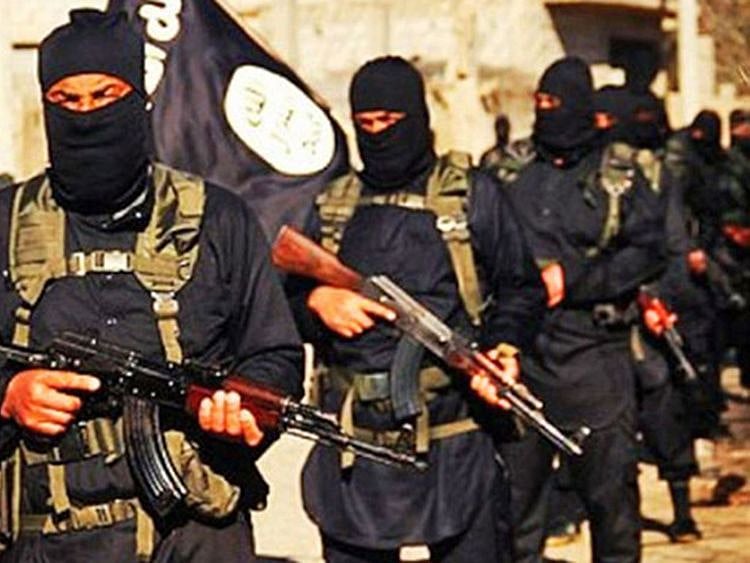There are strong indications that the Daesh terrorist group may be staging a comeback in Iraq, emerging stronger in terms of the number of fighters and attacks. The potential comeback of the terrorist group, which was defeated two years ago, is attributed to several reasons, most notably the growing tension between the United States and Iran.
Recently, Washington has ramped up its economic and political embargo on Tehran, which retaliated with military manoeuvres in the Gulf waters, in what is seen as important political messages by Iran to the US and Gulf neighbours.
Despite this escalation, Washington never talked about military confrontation with Tehran, in all the measures taken so far. The US repeatedly said that Iran should change its behaviour towards its own people, as well as its approach towards its neighbours and the entire region.
Washington frequently called on Tehran to halt intervention in others’ affairs through its militias in Iraq, Syria, Lebanon, Yemen, the Arab Maghreb and Africa.
So what is the relationship between Iran and Daesh? This is a logical question since Iran has organisations and militias in Iraq, Syria, Lebanon, Yemen and other countries.
All these groups serve Tehran’s interests under a number of names like Hezbollah, the Popular Mobilisation Forces (Al Hashd Al Shaabi), League of the Righteous (Asaib Ahl Al Haq), Mahdi Army and Badr Organisation, among many others. All these groups follow the orders of Ayatollah Ali Khamenei, the Supreme Leader of Iran.
Many people do not know that Daesh has strong ties with Iran, where it has grown to become a powerful militia with the support of the Iranian regime.
Rhodes revelations
The publication of the book The World as It Is by Benjamin J. Rhodes, American writer and political commentator, who was the National Security Adviser during the Obama administration, has revealed some important facts.
The book, published in 2018, revealed behind-the-scenes accounts of Obama’s presidency. Most people knew that Obama was at ease with Iran during his two terms in office (2009-2017), unlike current US President Donald Trump, who embraced a policy against Tehran after discovering the true intents behind its nuclear programme.
Trump noted that the nuclear deal with Iran is full of loopholes that allowed Tehran to benefit on several levels, apart from its reckless political practices and its heightened financial, logistic and military support for its militia organisations in the region.
In his book, Rhodes said that Obama started his contacts with Tehran in 2010 to reach an agreement about its nuclear aspirations. Iran offered that it would halt its nuclear activities for ten years in return for lifting sanctions and giving it an upper hand to do whatever it wanted in the Arab region. As a result of lifting the sanctions, Iran generated income of more than $400 billion (Dh1.47 trillion), out of which $100 billion went to funding its expansion plans in Syria, Iraq, Yemen, Lebanon, the Arab Maghreb and Africa, through its militias.
Secret negotiations
Rhodes, in his book, referred to the Iraqi elections in 2013 when the Iranians were very upset about Eyad Allawi’s win and threatened to withdraw from the secret negotiations about its nuclear programme if Allawi became the prime minister of Iraq. He also chronicled that Tehran openly asked Obama to support Nouri Al Maliki’s ascent to power, adding that Al Maliki gave orders to open Iraqi prisons that facilitated the escape of Iran’s agents, linked to Al Qaida, who were entrusted to establish Daesh.
The book also revealed that Al Maliki ordered the Iraqi troops to escape from Mosul leaving behind their military equipment worth $20 billion, while $600 million was kept in the Central Bank branch in Mosul for Daesh militias to fund their attacks and carry out a series of terrorist attacks in the region.
Rhodes illustrated in his book that Obama was aware that Tehran was behind Daesh operations but turned a blind eye because he wanted to end his reign with an agreement that prevents Tehran from developing nuclear weapons. Obama was willing to pay any price to conclude the nuclear deal with Iran.
The book mentioned that after signing the nuclear deal with Iran, Obama instructed his aides not to mention anything about the Syrian dossier by saying: “Mission accomplished”, which clearly means that Iran has halted its nuclear programme and was given an upper hand to act freely in Syria and the rest of the Arab world.
Future may throw more light on Obama’s relationship with Iran and his keenness on Al Maliki’s 2013 election win.
Questions like whether efforts led to the creation of Daesh will also be asked anew.
Mohammad Hassan Al Harbi is a renowned columnist and author whose writings cover various fields ranging from media studies to education.
Sign up for the Daily Briefing
Get the latest news and updates straight to your inbox
Network Links
GN StoreDownload our app
© Al Nisr Publishing LLC 2026. All rights reserved.
